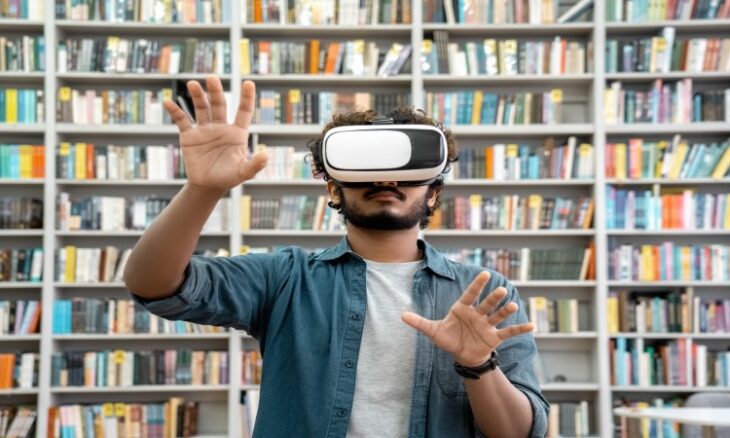ISU pioneers the use of VR to teach classical literature
Idaho State University is revolutionising the study of classical literature with an immersive virtual reality game. Crafted by researchers and students from the University’s Department of Computer Science and Department of English, the project is set to redefine the way students engage with the works of Austen, Dickens, and Shakespeare.
The game, known as Lit-VR, is not just a game. It falls under the category of serious games, designed to deliver educational outcomes. In this case, it’s all about enriching the study of English literature by immersing players in a carefully constructed historical environment.
Within the game, participants are transported to 17th-century Westminster Abbey, specifically to Poets’ Corner, where they can explore the legacies of prominent authors. The virtual environment also includes recognisable London landmarks such as the House of Commons, Shakespeare’s Globe Theatre, and London Bridge. As players progress and earn rewards, they are granted access to the London Docklands, where they can discover further overseas destinations, providing both a sense of achievement and new learning opportunities.
The developers have chosen London as the principal setting due to its prominence in literary history. By situating the game in locations directly tied to the works of many classical authors, the project enables students to gain a deeper understanding of the geographical and historical context of the texts they study. In doing so, it aims to help bridge the gap between abstract literary analysis and tangible cultural history.
A central goal of the project is to give students a deeper understanding of the English literary tradition by encouraging them to visualise the spaces and settings referenced in their reading materials.
The experience is designed not merely as a supplement to coursework, but as a way to immerse learners in the cultural, social, and philosophical background that shaped the works of canonical writers. By navigating virtual spaces inspired by historical London, students gain a perspective that textbooks alone cannot offer.
The project has also become a valuable learning opportunity for the students helping to build it. One computer science junior working on Lit-VR noted that the role demanded acquiring new technical skills, including aspects of game design, and undertaking extensive research into 17th-century London. Recreating the sights, sounds, and atmosphere of the city has required meticulous attention to historical accuracy, delivering an immersive and authentic experience for users.
The research team anticipates completing a prototype of Lit-VR by the spring of 2026. Following this milestone, plans include expanding the game to introduce additional locations and narratives that will further develop its educational scope. This ongoing process will allow for gradual refinement while maintaining the goal of integrating literature with cutting-edge digital technology.
Researchers view this project as a glimpse into the future of education. With technological advances making virtual reality more accessible, the potential exists for such platforms to become mainstream tools in the classroom. By offering personalised, interactive learning opportunities, virtual reality has the potential to transcend traditional educational boundaries and transform the way knowledge is absorbed. ISU’s Lit-VR initiative demonstrates how Innovation in digital media can complement and revitalise the study of classical literature, paving the way for broader applications in academic settings.









